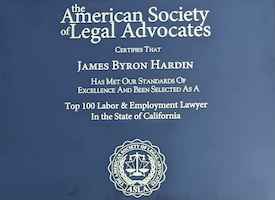How Do Jury Instructions Affect the Outcome of a Case?
When an employment dispute goes to trial, the outcome can depend in large part on jury instructions. The judge’s instructions can help the jury resolve difficult factual issues and understand key terms in California employment cases. When a judge gives erroneous or misleading jury instructions, a losing party may challenge those instructions on appeal. For example, a California appeals court recently reviewed a challenge to jury instructions in a wrongful termination case.
The Facts
The plaintiff in this case was an employee living with a physical disability. She had taken several leaves of absence, including one that lasted over one year. According to the employer, the employee indicated that she did not know when she could return to work, nor did she contact her doctor. Eventually, the employer terminated the employee. In response, she brought a lawsuit alleging disability discrimination, failure to provide a reasonable accommodation, and wrongful termination, among other claims.
She also alleged a failure to engage in the interactive process, which refers to a conversation between the employer and employee to arrive at reasonable accommodations for the employee’s disability. At trial, the judge read special instructions to the jury, which stated that an employer did not have to provide an indefinite leave of absence as a reasonable accommodation. When a juror asked if an employee could be terminated if they are “fully disabled,” the court said yes and referred them to the jury instructions. The jury then found in favor of the employer, and the employee appealed.
The Appeal
On appeal, the employee challenged the jury instructions and the court’s response to the juror’s question. She argued that they gave the jury the false impression that she was “fully disabled,” a term that lacked legal meaning and prejudiced the jury toward the defense. Additionally, she claimed the jury instructions incorrectly stated the law, arguing they made no reference to the employer’s burden of demonstrating that indefinite leave would impose “undue hardship.”
The appeals court disagreed. First, the employer did not asset an undue hardship defense, nor was it required to do so under California’s Fair Employment and Housing Act (FEHA). Therefore, providing jury instructions on undue hardship would have been inappropriate. Moreover, the court cited a previous case holding that indefinite leave was an unreasonable accommodation as a matter of law. Because an accommodation does not have to present an undue hardship to be unreasonable, the trial court did not err in its jury instructions to that effect.
Additionally, the appeals court found the court did not err in answering the juror’s “fully disabled” question. Here, it noted that the trial court’s answer did not imply that the employee was “fully disabled.” Instead, it merely stated that an employer could terminate a fully disabled employee in general. The court thus properly responded to the juror’s question. Accordingly, the appeals court affirmed the jury’s verdict in favor of the employer.
If you are seeking to hold an employer liable for failing to provide reasonable accommodations, contact the Hardin Law Group for assistance.





















